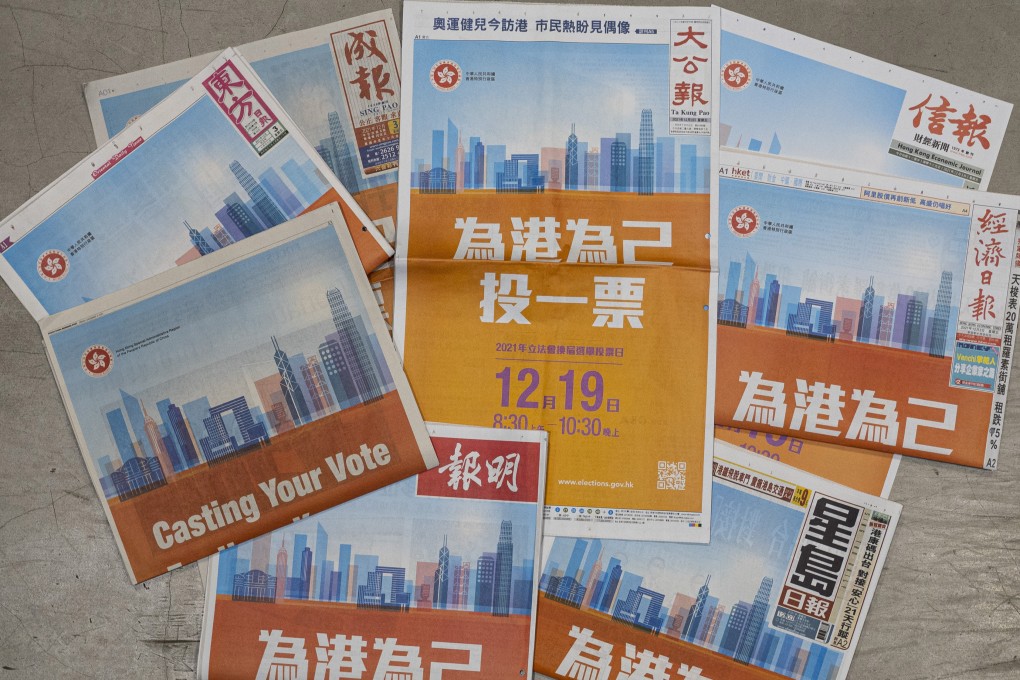Government splashes election ads across front pages of Hong Kong newspapers, as survey reveals nearly half of respondents do not plan to vote
- While the motivation behind the PR blitz was unclear, observers are expecting low voter turnout for the coming Legislative Council poll
- A separate survey found that 86 per cent of self-identified pro-democracy camp supporters felt there was no candidate running who was worthy of their vote

The ads, which featured information about polling arrangements and the slogan “Casting Your Vote For Hong Kong – Our Home”, were splashed across the Friday covers of Ming Pao, the Hong Kong Economic Journal, Wen Wei Po, Sing Tao Daily and at least seven other publications.
The advertisement, which included a QR code linking to the official election website, was also placed on page A3 of the Post.
The PR push came as an online survey conducted by the Hong Kong Public Opinion Research Institute (Pori) between Monday and Thursday found that 40 per cent of 6,400 respondents said they “most likely” or “absolutely” would not be casting ballots on election day.
A government spokesman on Friday confirmed the price of the ad blitz, and that the messages had appeared on either the cover or an inside page of a total of 16 local publications. Asked whether the campaign was prompted by concerns over low voter engagement this year, the spokesman said the government placed ads in newspapers for all elections to “encourage” turnout.